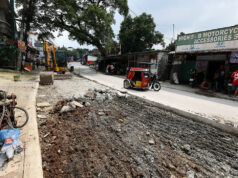RCBC net income steady at P4.3 billion on lending

RIZAL COMMERCIAL Banking Corp. (RCBC) saw its net income steady at P4.3 billion in 2018, flat from the previous year’s level and supported by increased lending across all segments.
In a statement, the Yuchengco-owned lender reported a consolidated net income that matched the amount it made in 2017.
The bank said its net interest income rose to P20.5 billion, 14% higher than the P18 billion level a year ago. This came on the back of a 12% increase in net loans and receivables, which amounted to P398.3 billion by yearend.
RCBC said “all strategic segments” grew, with corporate debt up by nine percent while retail loans went up faster at 17%. Broken down, credit card debts rose by roughly a third, while lending to small-scale businesses grew by 28%.
Loans granted by its subsidiary Rizal MicroBank also expanded by 17% year-on-year, targeting micro and small firms.
On the other hand, non-interest income drawn from service fees amounted to P6.1 billion, the listed lender said, which was seven percent higher from last year’s figure.
Total bank assets likewise grew by 16% to P644.8 billion, led by an increase in deposits to P423.4 billion.
Meanwhile, operating costs rose by nine percent to P19.5 billion, a “controlled” increase from 2017’s expenses which totalled P18 billion.
Excluding the impact of trading gains, RCBC said core income surged by 26% year-on-year.
The bank also stood well-capitalized in 2018, armed with an P81.4-billion buffer equivalent to a capital adequacy ratio of 16.13%, well above the 10% standard set by the central bank.
RCBC President and Chief Executive Officer Gil A. Buenaventura said the bank’s balance sheet position stands “stronger than ever,” adding that the recent stock rights offering affirms the lender’s “long-term growth prospect.”
The bank recently raised P15 billion from the issuance of peso green bonds, which are meant to finance projects for renewable energy and climate change mitigation. This is on top of an existing $2-billion medium-term note program and a P20-billion provision for long-term negotiable certificates of deposit.
The lender is also gearing up to absorb the operations of its thrift unit RCBC Savings Back by July this year, which is still subject to regulatory approvals. The move is meant to make operations more cost-efficient, especially with higher capital and liquidity requirements taking effect this year.
RCBC shares stood unchanged at P26.50 apiece on Tuesday. — Melissa Luz T. Lopez



